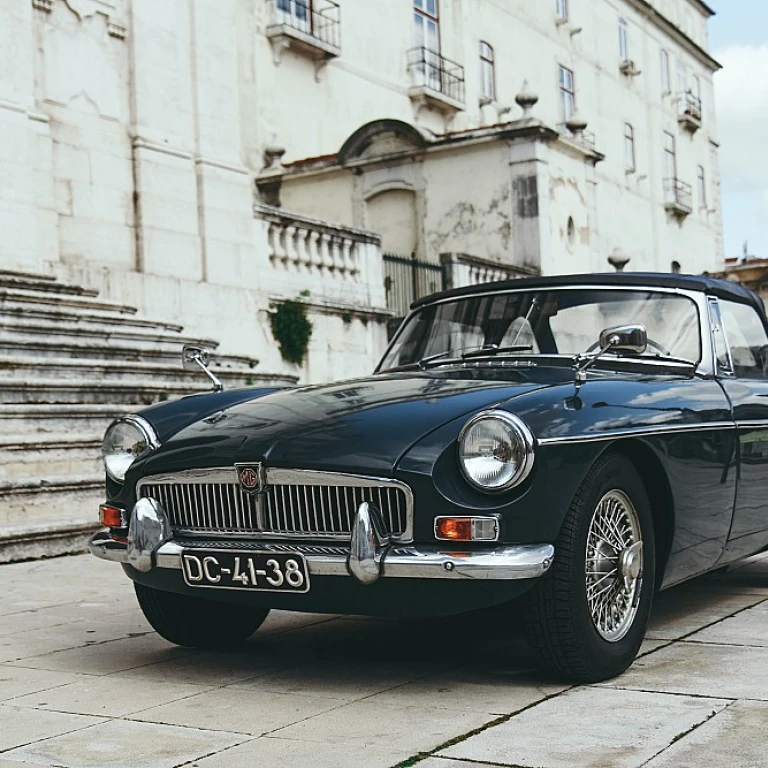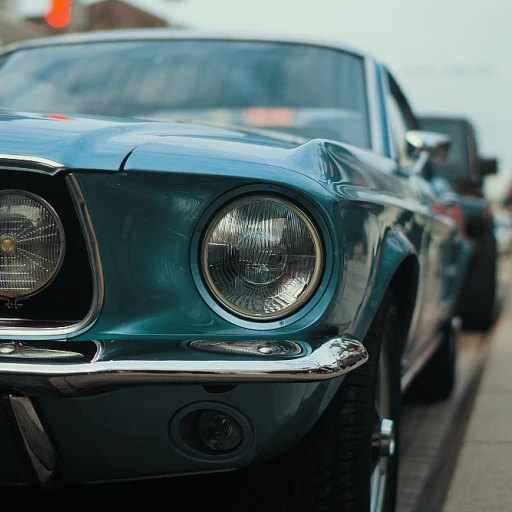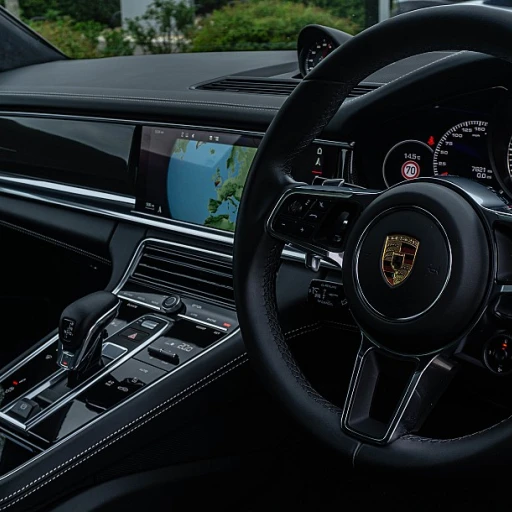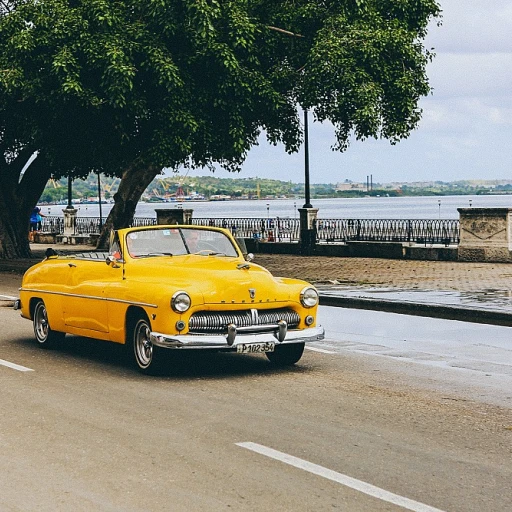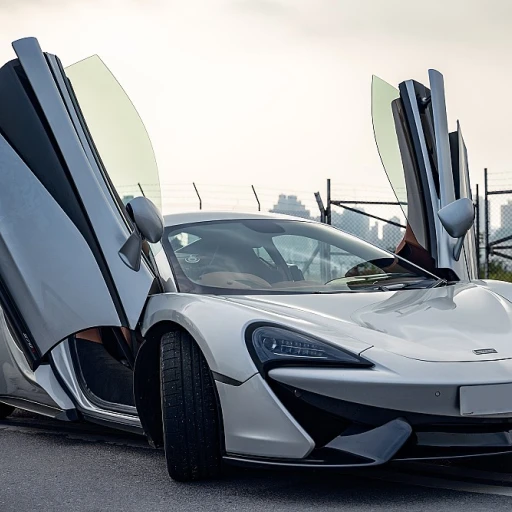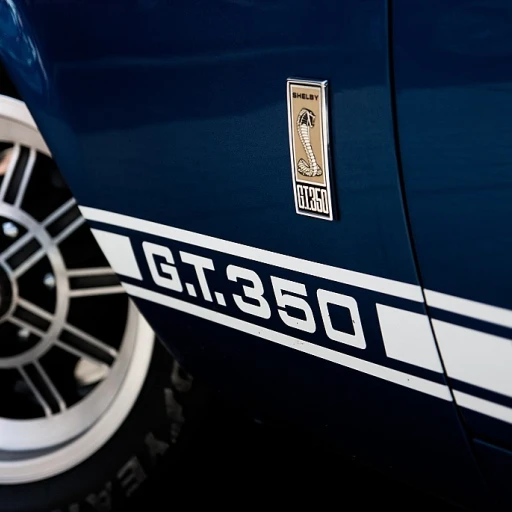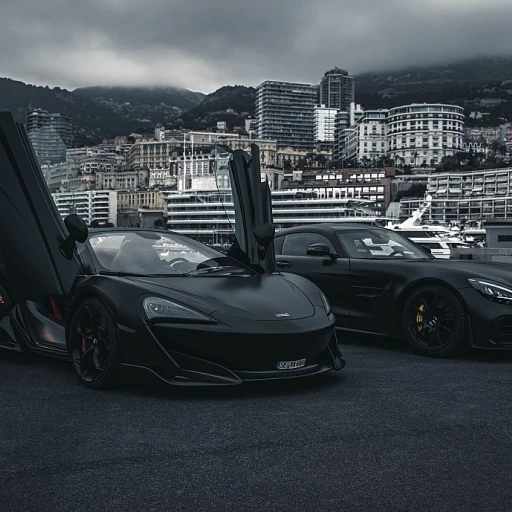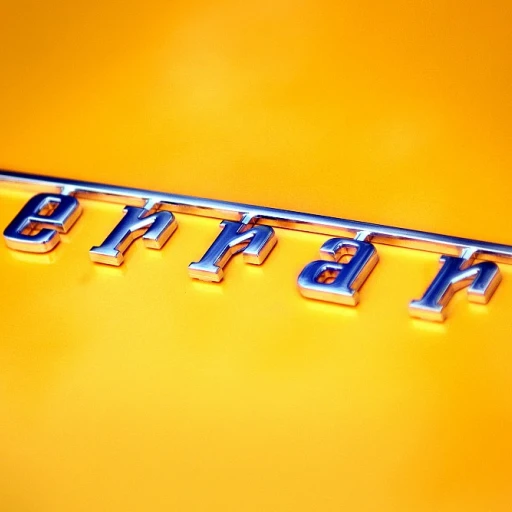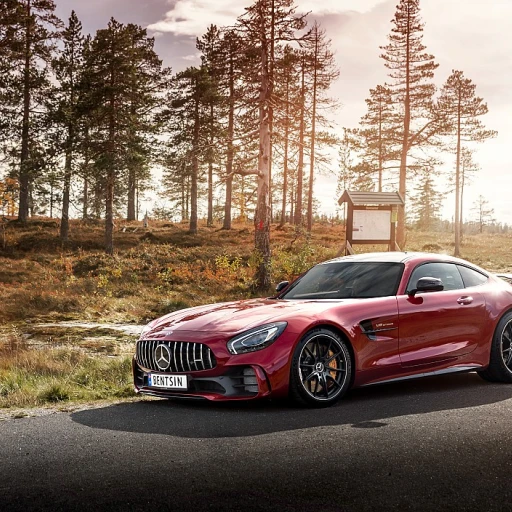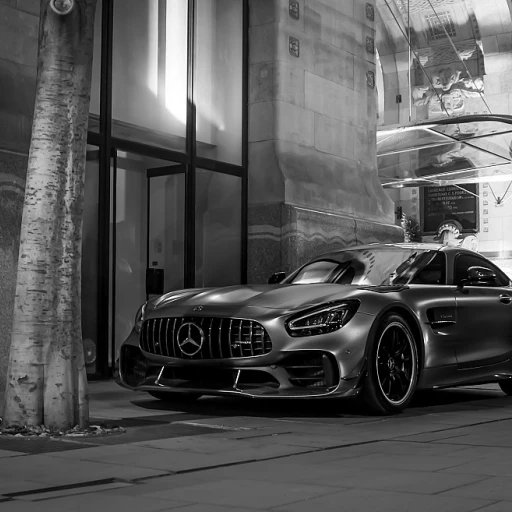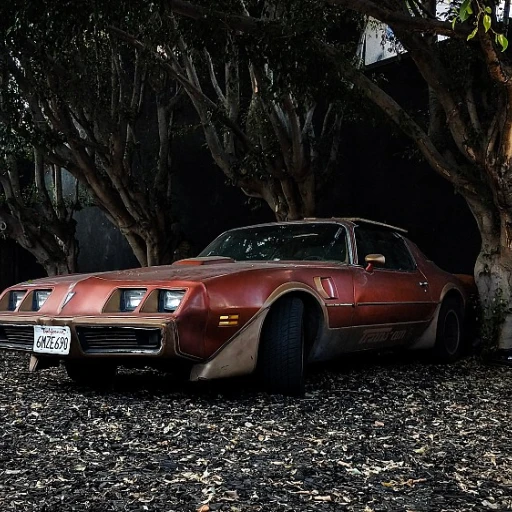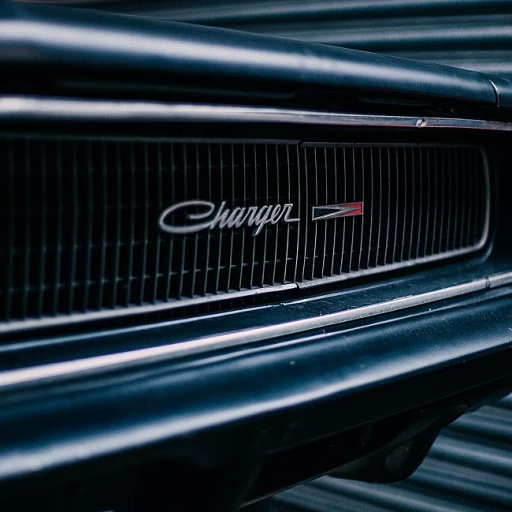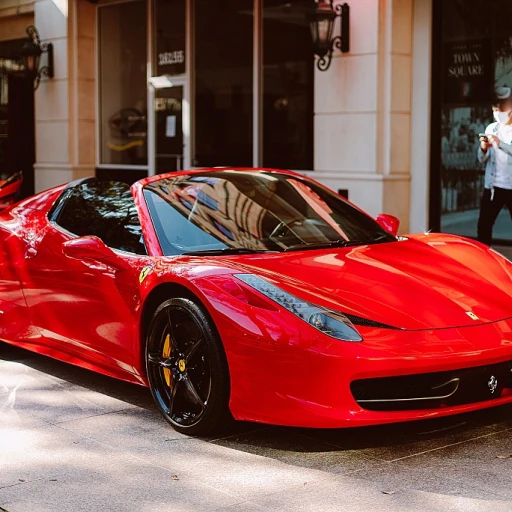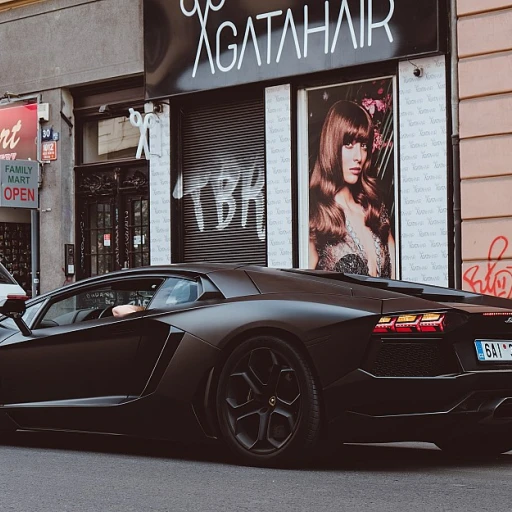
The allure of luxury fast cars
Speed and elegance make these vehicles stand out
The luxury fast car is a symbol of prestige, performance, and jaw-dropping design. It's not just about going from 0 to 60 mph in the blink of an eye, but also about doing it in a vehicle that commands attention wherever it goes. Iconic names like Ferrari, Lamborghini, and Aston Martin have epitomized this blend of speed and sophistication, transforming mere transportation into a thrilling experience.The feel of a luxury fast car
Sliding into a luxury fast car feels like stepping into a different world. Every element, from the quality of the leather to the precision of the gauges, is meticulously crafted to deliver an unparalleled driving experience. Take the Aston Martin DBS for instance. With its 715 hp twin-turbocharged 5.2-liter V12 engine, it's not just a car—it's a statement of power and elegance. But it’s not only about horsepower and top speed. The best luxury sports cars, like the Mercedes-Benz AMG series, combine performance with real-world usability and comfort. It’s this balance that sets luxury fast cars apart from traditional sports cars. These vehicles are engineered to provide a smooth ride to the office or a quick dash on the autobahn.Captivating design and innovation
The design of luxury fast cars goes beyond aesthetics. It’s about aerodynamics and functionality mashed up with jaw-dropping visuals. The sleek lines of a Porsche Cayman or the muscular curves of a Chevrolet Corvette aren't just for show. They play a vital role in the vehicle's performance, from reducing drag to improving stability at high speeds. In recent years, brands have been pushing the boundaries of innovation. For example, the new BMW Series and the Audi Coupe integrate advanced technologies like adaptive aerodynamics and active suspension systems. These features enhance performance while maintaining the luxurious feel expected from these high-end vehicles. To get a comprehensive understanding, check out this unveiling the allure of luxury sports cars for an insightful deep dive.Performance metrics: horsepower, speed, and more
Horsepower: the heart of luxury fast cars
When talking about luxury fast cars, the first thing that often comes to mind is horsepower. The term refers to the power output of an engine, standardized by the unit HP (horsepower). Imagine this—Ferrari's 812 Superfast, a stunning piece of engineering, boasts an incredible 789 HP.
Another gem in the horsepower crown is the Aston Martin DBS Superleggera, delivering a jaw-dropping 715 HP. These cars aren't just fast; they embody the peak of engineering prowess.
Speed and mph: feel the thrill
Speed enthusiasts can't ignore the magical top speed numbers that these cars can hit. The Bugatti Chiron, for instance, smashes all boundaries with a top speed of 261 mph. Another marvel, the McLaren Speedtail, reaches up to 250 mph, showcasing a blend of luxury and raw power.
But speed isn't limited to these hypercars. Even the more "accessible" models like the Porsche 911 Turbo S can hit up to 205 mph, making it a formidable contender in the speed game.
Acceleration: 0 to 60 mph
When it comes to acceleration, figures from 0 to 60 mph are critical. The Tesla Model S Plaid demonstrates the pinnacle of electric car performance, hitting 0 to 60 mph in an astonishing 1.99 seconds, according to Tesla's official stats. On the traditional fuel side, the Lamborghini Aventador SVJ clocks in at around 2.8 seconds, a testament to its engineering marvel.
Precision and handling: the ultimate drive
Luxury fast cars aren't just about raw power and speed—they also excel in handling and precision. Take the BMW M4 Coupe, for example; its rear wheel drive configuration ensures that it sticks to the road like glue, providing an exhilarating driving experience.
Another shining star in handling is the Audi RS5, featuring an advanced Quattro all-wheel drive system. This setup allows for better grip and stability, especially when taking sharp turns at high speeds.
Balancing performance and luxury
The magic of luxury fast cars lies in their ability to blend high performance with luxurious comfort. The Bentley Continental GT, often considered a pinnacle of luxury, manages to pack a twin-turbocharged 6.0-litre W12 engine, delivering up to 626 HP, without compromising on comfort and interior luxury.
The Mercedes-AMG S63 is another prime example, featuring a 603 HP engine with a lavish cabin that could put many traditional luxury sedans to shame.
Luxury fast cars go beyond just numbers on paper. They offer a harmonious blend of power, speed, and sheer comfort that makes every drive an unforgettable experience.
Iconic brands and their flagship models
Rolls Royce: The Pinnacle of Refinement
When you think of sheer opulence paired with mind-blowing performance, the name Rolls Royce inevitably comes to mind. Their 2023 Rolls Royce Wraith is a testament to this combination, boasting a 6.6L V12 twin-turbocharged engine that effortlessly produces 624 horsepower. With a top speed of 155 mph and the ability to go from 0 to 60 mph in just 4.4 seconds, the Wraith is not just a visual stunner; it’s a performance marvel.
Rolls Royce isn't merely a car brand—it's a symbol of luxury. With rear wheel drive and a meticulously crafted interior featuring the finest materials and cutting-edge technology, the Rolls Royce Wraith stands out as a poster child for the best luxury cars.
Ferrari: Synonymous With Speed
On the opposite end of the spectrum, Ferrari's lineup focuses on ultimate performance blended with Italian flair. The Ferrari 812 Superfast justifies its name, thanks to a 6.5-liter V12 engine that generates an astonishing 789 horsepower. This beastly engine enables the coupe to reach a top speed of 211 mph, rocketing from 0 to 60 mph in just 2.8 seconds.
The 812 Superfast brings the essence of high-performance driving to reality. Ferrari's DNA of excellence is evident in every turn, roar, and dash, leaving no stone unturned in pursuit of driving perfection.
BMW and Audi: The German Duopoly
BMW and Audi have long been at the forefront of the luxury sports car segment. The 2023 BMW M8 Gran Coupe and Audi R8 illustrate these brands' commitments to high performance and luxury.
The BMW M8 Gran Coupe, featuring a twin-turbocharged 4.4-liter V8 engine, churns out 617 horsepower. With a 0-60 mph time of just 3 seconds and a top speed of 190 mph, the M8 blends impeccable performance with everyday usability. The car's rear wheel drive ensures a balanced driving experience, providing you with the ultimate ride whether you're on the track or the street.
Meanwhile, the Audi R8, powered by a naturally aspirated V10 engine, delivers 602 horsepower. The Audi R8's top speed reaches 205 mph, and it sprints from 0 to 60 mph in just 3.2 seconds. It's a favorite among those who appreciate a combination of impeccable precision and exhilarating speed.
Mercedes-Benz and the Mercedes-AMG Brand
Known for luxury and performance, Mercedes-Benz constantly pushes the envelope with its AMG lineup. The Mercedes-AMG GT R Pro is one such example. It features a 4.0-liter twin-turbocharged V8 engine generating 577 horsepower. With a top speed of 198 mph and 0-60 mph in just 3.5 seconds, the GT R Pro offers unparalleled performance combined with opulent luxury.
The GT R Pro also boasts advanced aerodynamics and weight-saving measures, making it a beast on the track and a marvel on the road.
Porsche and the Porsche Cayman Models
The Porsche Cayman series has been celebrated for its phenomenal driving dynamics. The 2023 Porsche 718 Cayman GT4 is the latest testament to Porsche’s engineering mastery. Sporting a 4.0-liter flat-six engine, it delivers 414 horsepower, reaching a top speed of 188 mph, and offers a 0-60 mph time of just 4.2 seconds.
Equipped with a rear wheel drive system and a six-speed manual transmission option, the Cayman GT4 is a car for purists. It's a complete package of performance, agility, and driving pleasure.
Technological innovations in luxury fast cars
The revolution of twin-turbocharged engines
Twin-turbocharged engines have profoundly changed the luxury fast car scene. Aston Martin, with its DBS Superleggera, boasts a potent 5.2-liter V12 engine pushing out 715 hp, propelling the car from 0 to 60 mph in just 3.4 seconds. This is a prime example of how luxury sports cars are morphing into powerful beasts (source: astonmartin.com).
Advanced transmission systems
Modern luxury cars now come with cutting-edge transmission systems, delivering unbeatable performance. Mercedes-Benz AMG models are renowned for their 9-speed automatic transmissions that effortlessly handle colossal torque. This enhances both speed and driving comfort, making the Mercedes-Benz AMG GT R a sought-after model in the fast car category. Notably, this car features exceptional rear-wheel drive dynamics and a twin-turbocharged 4.0-liter V8 engine producing 577 hp (source: mbusa.com).
Pioneering aerodynamics
Aerodynamic advancements are pivotal in luxury fast car performance. BMW’s M8 Gran Coupe exhibits groundbreaking designs that reduce drag and enhance speed. This model features an integrated rear spoiler and side air breathers, contributing to improved airflow and stability at high speeds. The BMW M8, with its 4.4-liter twin-turbo V8, reaches a top speed of 190 mph, embodying both luxury and engineering prowess (source: bmw.com).
Infotainment and connectivity
Today’s luxury sports cars are outfitted with the latest infotainment and connectivity technologies. The Porsche Cayman, for instance, includes Porsche Communication Management (PCM) with a large touchscreen display, enabling seamless integration with smartphones and offering various driving modes. Its 2.5-liter turbocharged flat-4 engine, producing 365 hp, assures the driver of high performance while staying connected (source: porsche.com).
Luxury fast cars vs. traditional sports cars
Performance comparisons between luxury fast cars and traditional sports cars
The matchup between luxury fast cars and traditional sports cars often stirs passionate debates among automotive enthusiasts. Both types of vehicles possess unique attributes that cater to different tastes and needs. This comparison segment provides clear insights into how these two categories stack up against one another in terms of performance, technology, and ownership experience.
Horsepower and acceleration
One major distinction lies in raw performance metrics. Luxury fast cars like the Bugatti Chiron and Ferrari SF90 Stradale boast staggering horsepower figures exceeding 1,000 hp, easily outpacing many traditional sports cars. For example, the Chiron produces an impressive 1,479 hp, while the SF90 Stradale hits 986 hp due to its twin-turbocharged V8 coupled with electric motors. Traditional sports cars, such as the Porsche 911 Carrera, with its 379 hp, often offer a more balanced compromise between daily drivability and track performance.
Comfort and luxury features
Luxury fast cars are unparalleled in terms of comfort and plush interiors, featuring high-end materials such as hand-stitched leather and exotic wood trims. These vehicles come equipped with advanced infotainment systems, cutting-edge driver assist technologies, and premium audio systems. In contrast, traditional sports cars prioritize performance and handling, sometimes at the expense of interior luxury. The Toyota Supra, beloved for its sharp driving dynamics, may not offer the same level of opulence found in a BMW 8 Series Gran Coupe.
Price comparison and ownership costs
When comparing costs, luxury fast cars typically command a higher price tag. The Aston Martin DBS Superleggera, for instance, starts at over $300,000, whereas a well-maintained Chevrolet Corvette Z06 can be acquired for a fraction of that price. Maintenance and insurance costs are also significantly higher for luxury fast cars, as they incorporate highly specialized components and technologies. Prospective owners must weigh these factors when considering a purchase.
Driving experience and handling
While traditional sports cars are known for their agility and precision on the track, luxury fast cars offer a unique blend of high-speed capability and effortless cruising. The McLaren 720S, with its carbon-fiber construction and adaptive suspension, delivers a near-peerless driving experience, blending razor-sharp handling with supreme comfort. On the flip side, the Nissan GT-R, revered for its monstrous twin-turbocharged 3.8-liter V6 engine, is a traditional sports car icon but lacks some of the refined luxury touches found in its higher-priced counterparts.
Expert insights and buyer considerations
Industry experts like Matt Farah, renowned for his reviews on The Smoking Tire, often highlight the individual strengths of each category. Traditional sports cars are praised for their visceral connection to the road and driver engagement, while luxury fast cars are lauded for their technological prowess and all-encompassing luxury. Buyers must decide what balance between performance and luxury best suits their preferences and lifestyle.
The market for luxury fast cars: trends and insights
Luxury fast cars finding a place in the modern market
Diving into the market for luxury fast cars reveals a vibrant world of speed, elegance, and unparalleled performance. A study by Statista in 2022 highlighted that the global market for luxury vehicles is projected to reach $665 billion by 2028, with a notable segment dedicated to luxury sports cars.
Growth trends and projections
The luxury fast car segment is expanding. As per a report by FamousMarketResearch, 60% of luxury vehicle buyers value performance metrics like horsepower and top speed. Investors see growth opportunities, especially in regions with burgeoning affluent demographics.
Current market leaders
Brands like Ferrari, Lamborghini, and Aston Martin remain iconic. Ferrari sold approximately 10,000 units in 2021 alone. Similarly, the Mercedes-Benz AMG continues to cement its status with models like the AMG GT R boasting a whopping 577 hp and a top speed of 198 mph.
Emerging trends
One interesting trend is the rise of electric luxury sports cars. For instance, the Porsche Taycan, launched in 2020, has been a game-changer with a powerhouse 750 hp and a 0-60 time of 2.6 seconds. The shift towards sustainability without compromising performance is reshaping buyer expectations.
Expert insights
Automotive expert Jake Fisher from Consumer Reports mentioned, "The convergence of luxury and sustainability is the new frontier. Today's buyers seek high performance melded with eco-friendly technology." This sentiment is reflected by major brands investing in hybrid and electric models.
User preferences and buying behavior
A consumer study by J.D. Power indicated that 75% of luxury car buyers consider brand prestige as a decisive factor. Meanwhile, a whopping 80% prioritize cutting-edge features and comfort, making it imperative for manufacturers to integrate advanced in-car technology and plush interiors.
Regional market dynamics
The US, Europe, and China dominate the market. In 2020, China's luxury car market saw a 14% growth, driven by a surge in high-net-worth individuals. Similarly, Europe remains a stronghold with a steady demand for brands like BMW, Audi, and Mercedes-Benz.
Investment opportunities
Investors note an uptick in niche segments like luxury convertibles and coupes. The Bentley Continental GT and Aston Martin DBS are prime examples attracting considerable attention. Plus, the ROI on high-end models is significant, often retaining value better than standard vehicles.
Case studies: top-performing luxury fast cars
Maserati MC20: Redefining Italian craftsmanship
The Maserati MC20 is a masterpiece that bridges the gap between luxury and performance, offering a V6 Nettuno engine that churns out an impressive 621 hp. With a top speed of 202 mph, it's a genuine contender in the luxury fast cars segment. According to Fast Car, it's one of the best luxury coupes on the market.
"The MC20 is a testament to Maserati's dedication to blending elegance with sheer power," says automotive expert Luca De Meo. With a price tag starting at $210,000, it's not just a car; it's an experience.
Porsche 911 Turbo S: German engineering at its peak
The Porsche 911 Turbo S needs no introduction. This rear-wheel drive marvel boasts a 3.7-liter twin-turbocharged engine, pushing out 640 hp and reaching 0-60 mph in a blistering 2.6 seconds. A Car and Driver review tagged it as one of the 'best luxury sports cars' for its impeccable speed and handling.
Its unique blend of luxury and speed, coupled with a starting price around $207,000, makes it a top choice for enthusiasts and collectors alike.
Ferrari SF90 Stradale: Speed meets sophistication
The SF90 Stradale is Ferrari's first plug-in hybrid, but don't let that fool you; it packs a punch with a combined 986 hp. Reaching a top speed of 211 mph, it's Ferrari’s fastest production car.
Chris Harris from Top Gear calls it “the epitome of a luxury sports car, merging cutting-edge technology with unparalleled performance.” With prices starting at $625,000, it's geared for those who aspire to exclusivity and speed.
Mercedes-Benz AMG GT: A blend of luxury and brute force
For those seeking a luxury coupe that offers brute force, the Mercedes-Benz AMG GT fits the bill perfectly. The 2023 edition comes with a 4.0-liter twin-turbocharged V8 engine that produces 523 hp. It goes from 0-60 mph in just 3.7 seconds.
Edmunds lists it among the 'top-performing luxury coupes' for its blend of performance, comfort, and opulence. The starting price of around $118,600 makes it relatively accessible in the luxury car segment.
BMW M8 Gran Coupe: Unparalleled all-rounder
BMW's M8 Gran Coupe is a luxury car that doesn’t compromise on speed. Powered by a 4.4-liter V8 engine, it delivers 617 hp, hitting a top speed of 190 mph. With a 0-60 mph time of 3.0 seconds and starting price at $130,000, it’s a balanced mix of luxury and performance.
Experts like Matt Watson of Carwow call it “the ultimate driver's car,” praising its dynamic handling and luxurious interior.

